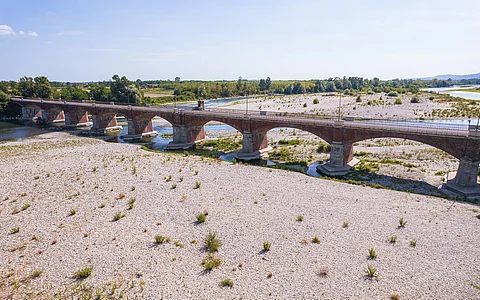

Climate change could decrease freshwater flowing through rivers into the Mediterranean Sea by as much as 41 per cent, according to a study published by European scientists on February 3, 2025.
The 41 per cent reduction in river flow will happen in an extreme scenario of unchecked climate change and global temperature rise of 4 °C above pre-industrial levels, as per the study.
The low water in Europe’s rivers flowing into the Mediterranean would cause a ‘profound alteration’ of coastal ecosystems due to reduced freshwater and nutrients inputs that lead to a decrease in primary productivity of the system.
This, in turn, would affect the whole food chain and ultimately impact the commercially exploited seafood species.
“The results show that 41% less river flow could slash marine productivity by 10 % and fish biomass by 6 %, in the Mediterranean and lead to annual losses worth €4.7 billion to the fishery sector. This would bring about dire socio-economic consequences for fisheries and coastal communities,” according to a statement released by the European Commission’s Joint Research Centre.
The Adriatic and the Aegean Seas, which are part of the Mediterranean, appear to be particularly vulnerable to global warming.
Both marginal seas of the Mediterranean could see reductions in marine productivity and fish biomass of 12 per cent and 35 per cent, respectively, as per the statement. These areas are among the most intensely fished regions in the Mediterranean Sea.
“The study used the JRC-designed Blue2 Modelling Framework (Blue2MF) to assess the impacts of reduced freshwater flow on the Mediterranean Sea's biogeochemistry, food web and socio-economic sectors. The findings indicate that the most productive and heavily fished regions, such as the Adriatic and Aegean Seas, are at the highest risk, with potential biomass losses exceeding their current fishery landings,” it noted.
The overlooked impacts of freshwater scarcity on oceans as evidenced by the Mediterranean Sea has been published on February 3, 2025, in the journal Nature Communications.